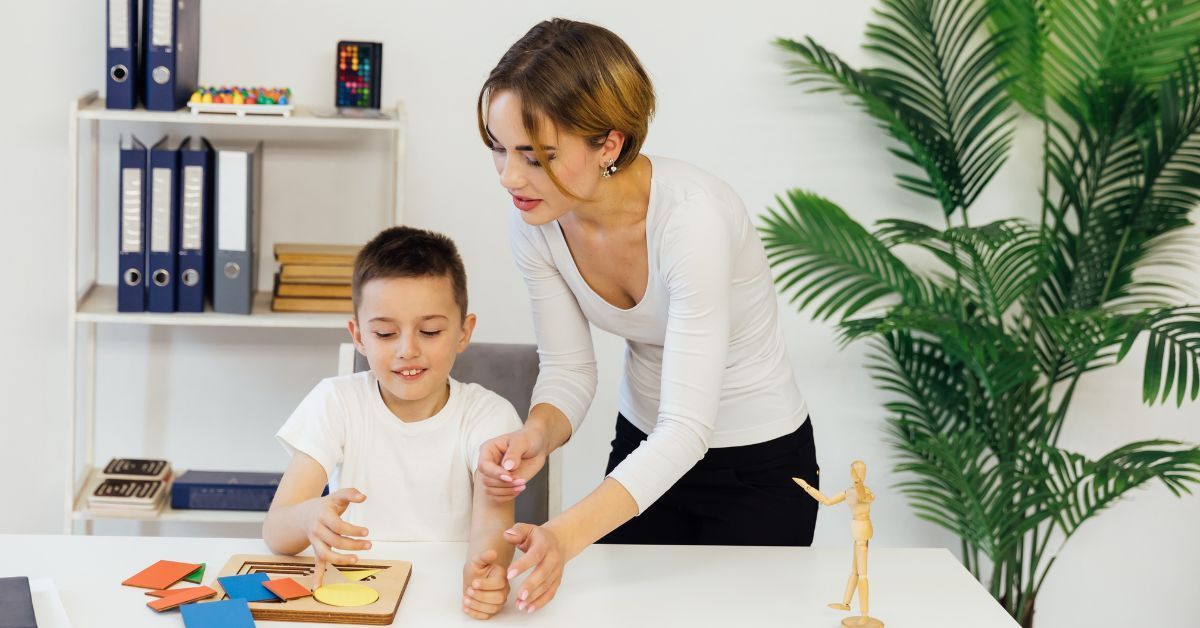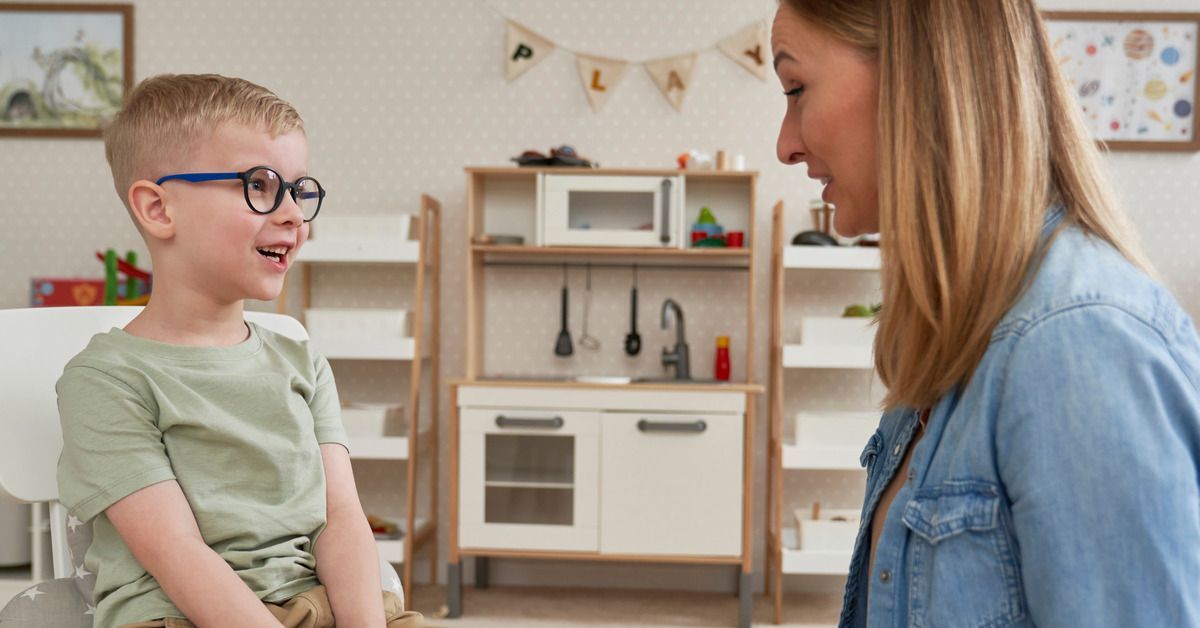Building Self-Esteem in Children With Autism
Building self-esteem in children with autism is a vital aspect of their growth and overall well-being. Self-esteem serves as the foundation of confidence, helping children face challenges, form relationships, and develop independence. However, for many children on the autism spectrum, building self-esteem can be a unique challenge due to the hurdles they encounter in their daily lives. Join us as we explore the importance of self-esteem, the barriers children with autism face, and how parents, educators, and therapists can work together to nurture it.
Understanding Self-Esteem and Its Importance
Self-esteem is the belief in oneself and a recognition of one’s inherent value. For children, it is the emotional fuel that drives their developmental success. When children have a strong sense of self-esteem, they are more likely to approach social situations with confidence, regulate their emotions, and handle setbacks with resilience.
For children with autism, self-esteem is even more critical. These children often face additional challenges in the social world, and a healthy sense of self serves as a buffer against the potential negative impact of isolation and sensory overload. High self-esteem enables children on the spectrum to overcome daily struggles, develop adaptive skills, and celebrate their individuality. It’s a central ingredient for emotional well-being and independence.
Common Challenges Children With Autism Face in Building Self-Esteem

Social Interactions and Peer Relationships
Interacting with peers is often a source of anxiety for children with autism. Misinterpreting social cues or difficulty engaging in group activities might lead to feelings of exclusion. These social struggles can shape how children perceive themselves, sometimes leaving them feeling inadequate or rejected.
Communication Barriers
Communication difficulties present another significant challenge. Children on the spectrum may struggle to clearly express their needs, emotions, or ideas. When others dismiss or misinterpret their efforts to connect or express themselves, their confidence can erode. Developing effective communication strategies is essential for fostering their self-assurance.
Sensory Sensitivities
Sensory sensitivities further complicate the process of confidence building. Sounds, textures, lights, or crowded environments can make everyday situations overwhelming. This overstimulation often influences a child’s ability to remain emotionally regulated, leading to feelings of frustration or unease. Finding coping mechanisms that address these sensitivities is essential for their emotional and psychological growth.
How Parents and Caregivers Can Foster Self-Esteem in Children With Autism
A parent’s role in fostering self-esteem is impossible to overstate. Supporting children with autism requires intentional strategies to help them feel secure and empowered.
Celebrating Small Successes With Positive Reinforcement
Positive reinforcement is fundamental in building self-esteem. When parents and caregivers celebrate even the smallest successes, they send a powerful message to children about their capabilities. Whether a child completes a puzzle, ties their shoes, or tries a new food, recognizing these efforts helps them feel proud of their accomplishments. Over time, these small moments of celebration build a child’s confidence and remind them that you value their hard work.
Encouraging Independence and Autonomy
Allowing children to make decisions and solve problems on their own is a key way to foster self-esteem. When children have the chance to complete manageable tasks independently, they experience a sense of control and achievement. For example, letting a child choose between two activities or asking them to organize their belongings builds confidence in their abilities. These small steps of autonomy gradually add up, helping children develop a strong sense of self-worth and independence.
Supporting Social Skills Development
Structured activities provide children with a safe space to practice social skills and build confidence in communication and interaction. Social skills training and role-playing exercises create a non-judgmental environment where children can experiment with different social scenarios. Participating in group activities, such as art classes or games, further accelerates their social development and enhances their self-image. These experiences help children feel more comfortable in social settings and contribute to a positive sense of self.
The Role of ABA Therapy in Building Self-Esteem
Applied Behavior Analysis (ABA) therapy is one of the most effective methods for supporting children with autism. This evidence-based approach focuses on improving functional skills while reducing barriers to learning. ABA therapy provides children with tailored strategies to develop positive behaviors, enhance communication, and build essential social skills. These small but consistent improvements contribute to a greater sense of accomplishment and self-worth.
By using techniques like task analysis or reinforcement, ABA therapy helps children achieve milestones in a measurable and meaningful way. The structured framework also allows therapists to zero in on challenges that might be affecting a child’s confidence, offering targeted support for overcoming them. The long-term impact is clear; children begin to feel more capable in navigating their surroundings, contributing to their overall growth and self-esteem.
Parent Training for Autism as a Confidence Boost

The process of bolstering a child’s self-esteem involves not just the child but also their caregivers. Training equips parents with tools and insights to support their child effectively. It enables them to understand their child’s strengths and struggles while building the communication skills necessary to foster growth at home.
Through training, parents learn how to establish routines, integrate positive reinforcement, and create adaptive strategies that reinforce independence. Parents become empowered to bridge gaps in collaboration with therapists, ensuring that their child experiences consistent support across all environments. The skills gained through parent training for autism can make a sizeable difference in shaping a nurturing home environment that boosts confidence and emotional security.
Building a Strong Support System for Your Child’s Self-Esteem
A well-rounded support system is instrumental in helping children with autism thrive. Engaging with professionals such as therapists, educators, and support networks ensures that children receive tailored guidance. Multidisciplinary teams work collaboratively to address multiple aspects of a child’s development, from behavior to communication and socialization. Finding qualified professionals or community networks that understand your child’s unique needs is key to this process.
At home, creating a positive and structured environment further reinforces emotional stability. Clear routines and manageable expectations provide a sense of predictability and safety. Encouraging dialogue, listening actively, and validating your child’s feelings nurture confidence and understanding. When they feel supported, children have the freedom to take small risks, grow, and thrive.
Fostering Hope and Confidence in the Journey Ahead
Building self-esteem in children with autism requires dedication, patience, and collaboration among caregivers, therapists, and educators. While the road may have its challenges, the rewards are enormous. A child who believes in themselves and their abilities can handle obstacles with greater resilience, form healthier relationships, and pave the way for a fulfilling life.
By focusing on small victories, encouraging independence, and surrounding your child with a solid support system, you can truly make a difference in their life experiences. Each step you take as a parent or caregiver brings them closer to understanding their value and potential.







